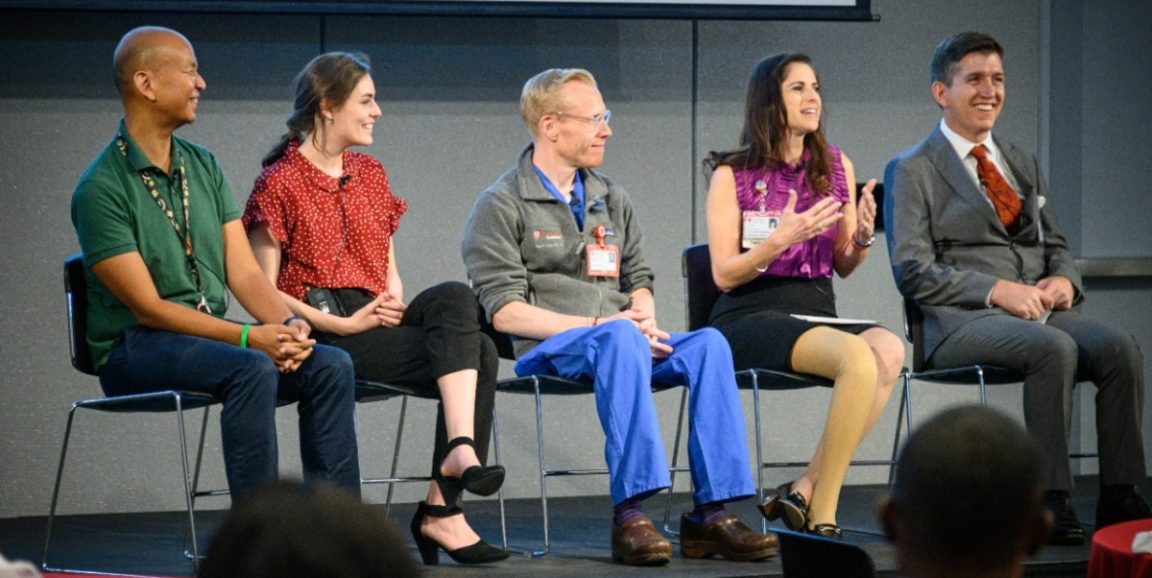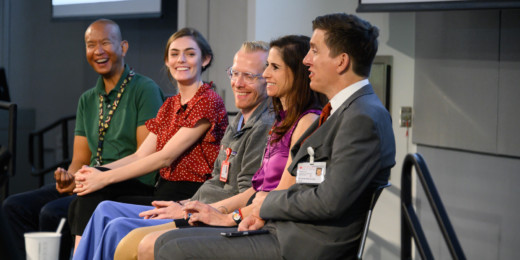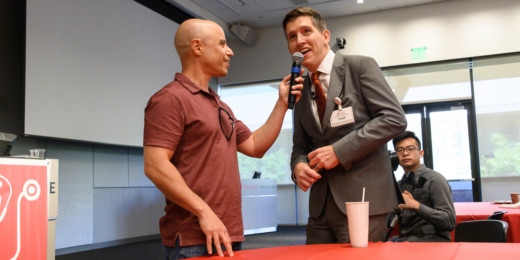Medical professionals with disabilities -- whether they have mobility challenges, cognitive impairments, chronic diseases or mental health struggles -- often conceal their conditions, said Peter Poullos, MD, an associate professor of radiology as well as founder and executive director of the Stanford Medical Abilities Coalition.
"There's a lot of people in the closet," he said. "People are hiding their disabilities for fear of being discovered or discriminated against."
Poullos, who suffered a spinal cord injury in 2003, is hoping the second annual virtual Stanford Conference on Disability in Health Care and Medicine will help disabled health care workers connect with peers and advocate for assistance. The conference, which takes place Saturday, April 10, will cover legal rights, research, advocacy and care of patients with disabilities.
I spoke with Poullos about disability in the medical profession and the value of building a community of disabled health care workers.
Why does the medical field need to provide more support to providers with disabilities?
A lot of times institutions are focusing only on providing the minimum accommodations necessary to meet the Americans with Disabilities Act requirements, rather than thinking creatively about how they can include everyone. This happens to medical school applicants and attending physicians alike. It can be especially difficult for people with invisible disabilities, such as mental health and chronic illnesses.
You can imagine that in medicine there's a culture of strength and ableism, and the idea of a physician having limitations doesn't factor in. A lot of people question why we should make accommodations, but if they ever became ill themselves they would understand.
Employing disabled physicians is helpful for patients with disabilities, and not only for those who see the disabled doctor. If doctors have a peer relationship with somebody with a disability who is making it work, who is competent in their job, then that will decrease stigma -- it will change their ideas of disabilities. And that decreased stigma will inform patient care.
Also, because we have experience on both sides of the curtain from having been in the hospital bed, we can better identify problems in the system to improve care. There are a lot of disparities in care for people with disabilities. Screening for cancer is lower for patients with disabilities, for example. There are even some clinics that patients in wheelchairs can't access.
What grew out of last year's conference?
Several big initiatives came out of the conference. With colleagues from several academic medical centers, we are creating a consortium to serve as an umbrella group for disability organizations that are working on these issues. We plan to use our collective resources to tackle problems on a national level.
Stanford participated in a study to track the performance and trajectory of medical students with disabilities. We looked at board exams, graduation rates and whether they match to residency programs.
We also started a national mentorship program for medical students and working professionals with disabilities. There are a lot of students and doctors who've felt discriminated against, and they're looking for support and advice on how to navigate some of these difficulties.
What do you hope this year's conference will engender?
I hope students and working professionals get the sense that they're not alone. I hope to show people what's possible when the right support is in place. I hope to inspire people to organize and advocate at their institutions or practices. I hope to motivate people to work on these issues.
We're going to provide practical advice on advocacy to act as a road map for people who don't have disability groups at their schools.
A lot of it will be raising awareness, fostering a sense of community, and inspiring people to act and unite to support providers with disabilities.
The conference is open to all medical professionals, students and their allies. Register here. There is no fee to attend.
Photo of Poullos, at right, with medical students and Stanford physicians at a 2019 event celebrating the launch of the Stanford Medicine Abilities Coalition by Luke Girard.






